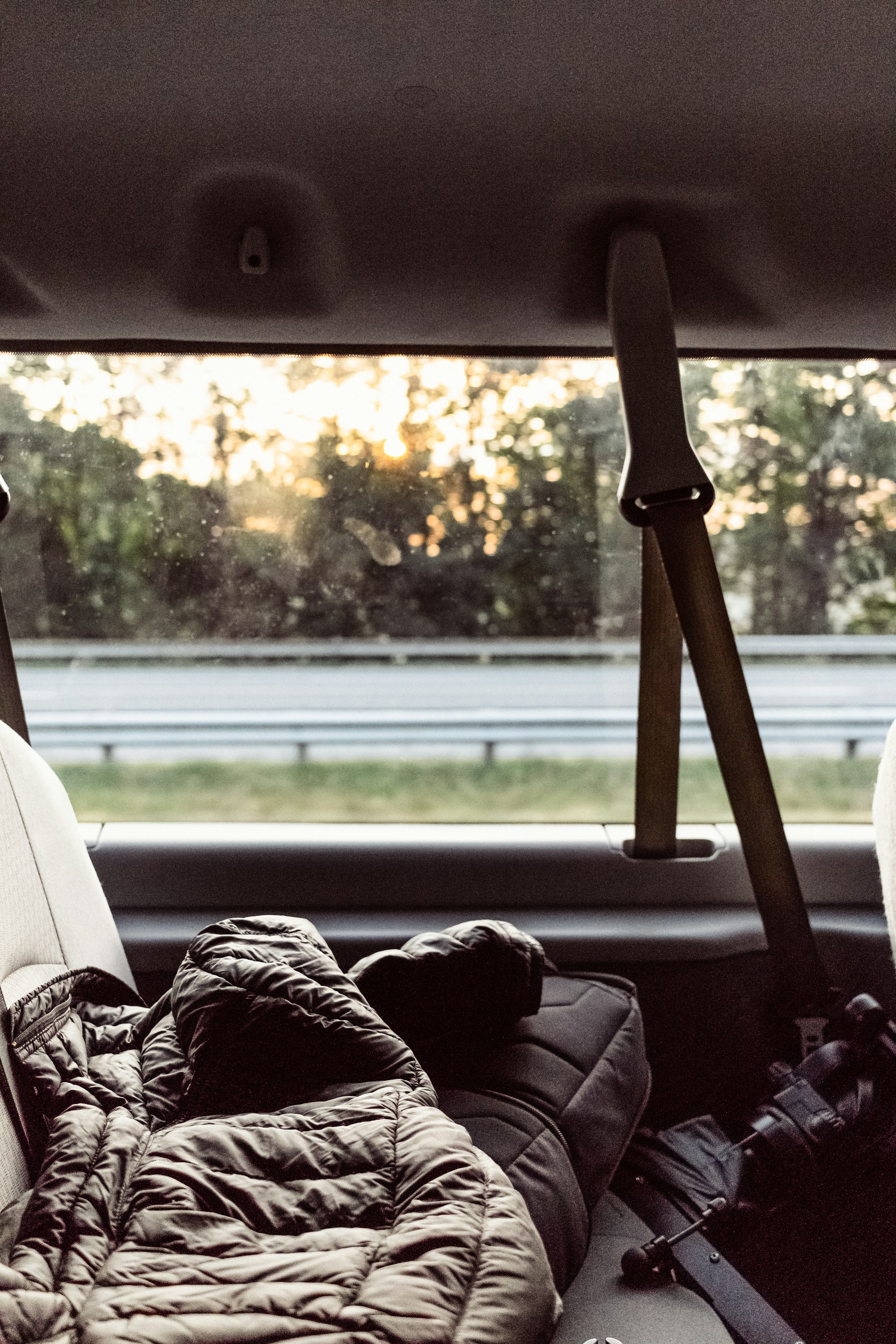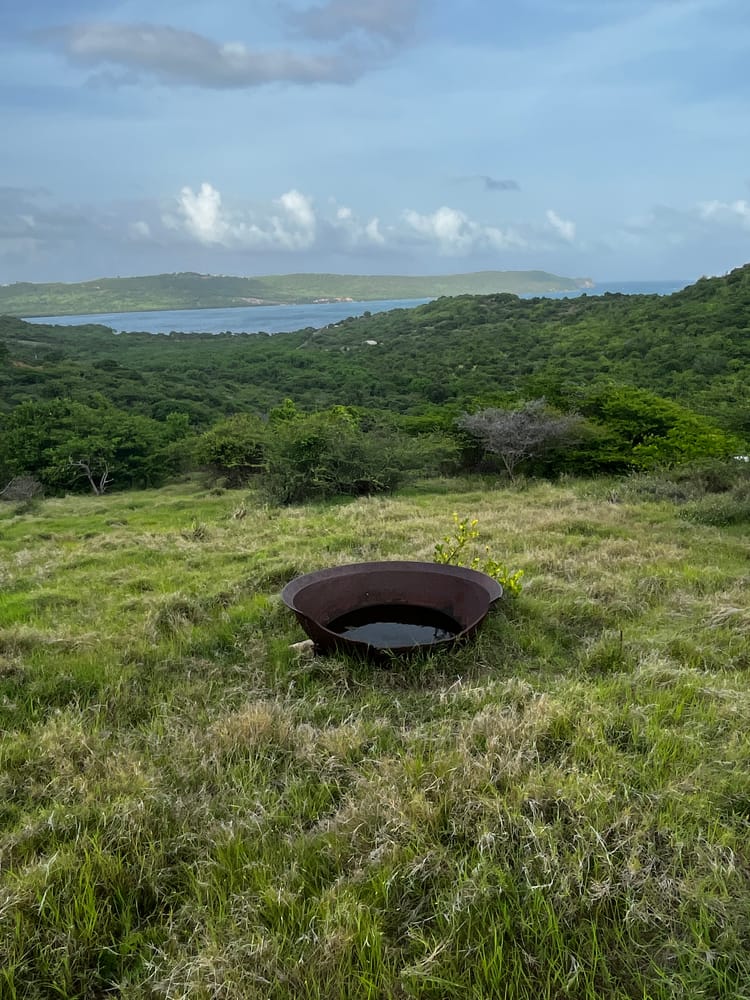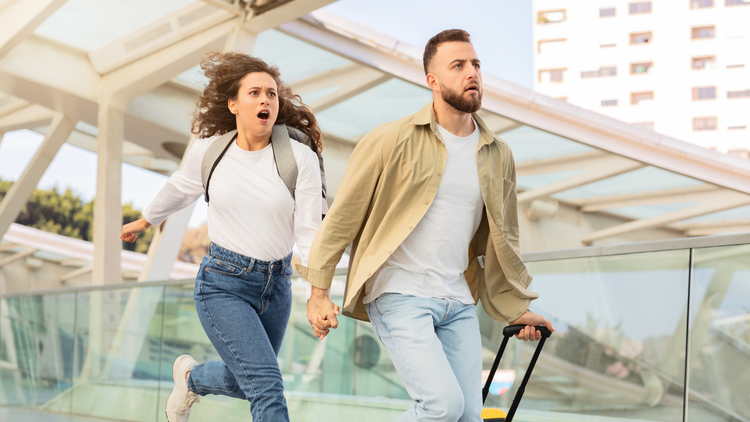10 Tips to Help you Plan Your Next Solo Road Trip

Do you jump in your car and drive across the country without a plan or care?
"Turn here—left, I mean right," she said as I turned left and got to a dead end on a dark, narrow road somewhere around Lake Como in northern Italy. I was tired since I had driven the entire five-plus hours. I was also hungry, and my bladder hurt under strain. A three-point turn evolved into a 10-point turn, complete with nearly getting the green CRV stuck in the muddy ditch. The automatic four-wheel drive screeched us out of the trench. Unsurprisingly, I became intolerant of this deficiency, which way is left or right. I realized we argued all the time once we got off the highway and onto the more minor roads because the printed maps grew incoherent closer to the end of the road trip. Everyone was tired and cranky by then. After many arguments with my co-pilot, I finally bought a GPS from MediaMarkt Meyrin, Geneva. That was 2005. Road trips are inevitable in large land masses. I regularly go on road trips and am always the super-prepared one. Here are my ten tips to help you plan your next solo road trip.
I am on the usual Thanksgiving road trip. It promises to be a blast. Then I will be on another ten-day road trip to my Vipassana course. You can read more about that experience in next week's post.
1.Start planning days in advance.
It is vital to prepare your vehicle for the journey. You have decided on the dates you will be away. You have reserved your lodging: hotel, Airbnb, Vrbo, or best friend's vacation villa. Pack all that you need days in advance. Sometimes, you may only have time to pack the day before you leave. However, whenever you think of something else to carry, you get it and leave it near your suitcase or travel bag. I use these luggage pods from Amazon to help me arrange my clothes. Essential items include your daily clothes, toiletries, medicines, and extras. Make sure to go to the store to buy snacks and bottled water. Replenish your first aid kit (yes, carry a first aid kit—you should have one in your car even when not on a road trip). At a minimum, change your oil filter and oil—top-up all fluids under the hood.
Likewise, rotate, align, and balance your tires. You want to avoid driving 300-plus miles eroding the inner side of new tires. If you live in a temperate country, don't go on a road trip in the summer with your winter tires. The drone of winter tires puts me to sleep, so I swap them for summer tires as soon as spring hits. Besides, using the wrong tires ruin your vehicle's performance and costs more in the long run. It helps to clean your car inside and out. Ensure all your lights and wiper blades work and fix any other car issues before departure. Make sure your insurance and registration are up-to-date. Confirm that your driver's license is valid and not near expiration.
2. Get plenty of rest.
The night before, get a whole night's sleep. Stay away from packing all night or binge-watching your favorite TV series. It's not like you travel by plane and can sleep on the flight. You need to stay alert since you are the driver. Many people fall asleep at the wheel due to insufficient rest the night before or medication that makes them sleep. I have tried leaving on road trips at 3:00 and 4:00 AM, only to park and rest for a nap from 5:00 AM until sunrise. I was attempting to avoid rush hour traffic. The twilight hours are when you get your REM sleep. Those hours should be spent on something other than driving if you can help. I drove for over 9 hours from Atlanta to Ohio and back within 24 hours. I was exhausted, and it was dangerous. But it was also during the COVID-19 lockdown, and nowhere was open to rest. I hope I never have to do that again.

3. Pack and take plenty of water and snacks
I love a vehicle with multiple cup holders. I pack water in an easy-to-open container, which I place in an easy-to-access cup holder. I also pack snacks like peanuts and something sweet, like dried fruits, honey-roasted nuts, or small cookie or biscuit snacks. My car is a mess when I arrive, but I can clean the car, so that's okay. If I have time before, I may pack lunch or dinner depending on which meal time will pass during my journey. If you have a special diet, it's always easier and less headache to pack your meals.
Audible: audiobooks, podcasts & audio stories
4. Dress comfortably
Wear loose clothes. Dress warm, but not too hot. It would help if you were alert; a comfortably cool ride is best. If it's winter and cold, keep a jacket close. Take an extra blanket in the trunk in case you break down. I always have my sleeping bag in the car boot. Have warm hats and gloves available. I once had to spread it on the bed of a cheap roadside hotel. If it's summer and hot, have a rain jacket ready. Always wear comfortable shoes. Retain shades handy for sunny days. Get a pair to help you avoid other cars' glare. Keep extra glasses in the car in case the one you are wearing breaks, especially if you need them to drive.
5. Download your audiobooks and podcasts
I always join the public library where ever I live. Nowadays, you can borrow audiobooks from the library for free, download them on your smartphone and listen to them while driving. I have an app called Libby (library for short). Other options are Audible by Amazon, where you can purchase most books. Many of you listen to podcasts on the go on various apps like iTunes, Podcast on iPhone, or Stitcher on Android. There are many options for podcast apps. Go into the settings and set the apps to automatically download your favorite shows/podcasters/news so that even in spots on the highway with no cell signal, your podcasts can run from one to the other uninterrupted. Also, set your music app ready with your favorite stations or music set to go.

6. Rest after at least 3 hours of driving
Don't attempt a 5-hour drive in one go. Or worse, don't do what I did with a 9-hour drive time. It's not a race; even if it is, it's better to arrive late than not at all. I rest at least every three hours. I have lower back issues, so I pause driving in shorter spurts whenever I can find a gas station or rest stop. To provide an incentive to stop, I hydrate regularly. Then, I have no choice; getting out of the car and walking is good for my back. Get out and stretch. Breathe some fresh air. Only stop at gas stations, rest stops, or parking spaces where it's safe. Remember to lock your car with the windows up every time you leave it, even if it is nearby. Don't leave valuable items in plain sight through your windows: cell phones, laptops, cameras, jewelry, purse, wallet, or worse, cash, even coins. People will break your windows for whatever it is since it's not their car. Take your car keys and cell phone whenever you leave the vehicle. The same goes for if you get gas. Lock the car, but please don't lock your keys inside!
7. Prepare for mechanical problems.
Make sure you check your spare tire before you leave. Some people have run-flat tires, especially women who drive alone a lot, for safety. However, remember they have a maximum range of about 50 miles depending on road conditions. Don't try to complete your trip if you are more than that time away. Make extra light bulbs available if you blow one on your way. Keep a flashlight with fresh batteries on hand. I carry a penlight and a miner's headlamp in my bag whenever I travel. That way, my hands can be free to do whatever I need. I also keep a small tired pump that works with the car outlet. Often if the temperature falls rapidly, you lose tire pressure. You want to keep the recommended tire pressure to maintain fuel efficiency and wear. Keep some older clothes (at least a shirt), rubber gloves, and hand sanitizer in the car if you need to perform a dirty task, like changing a tire.
I have one similar to this in my car. Yes, I got it at Amazon!
8. Fill your tank just as you leave town but before the highway.
I live in the city, so gas is expensive. On the outskirts, gas prices fall a bit. Then they increase higher on gas stations along the highway. So, I wait until I am about 30 minutes from the city to fill up with cheaper gas. This strategy works for me, but something else may work for you, given where you live. Ensure you are not on long lonely roads without gas stations and low on gas. The anxiety alone will raise your blood pressure.

9. Let friends and family know you are on a road trip.
Use your GPS to determine how many miles and long the journey will be. Then let your family, friends, or whoever knows when you are leaving and when you expect to get there, give or take your rest and refueling time. Let them know when you leave and when you arrive at your destination. Some GPS can send messages to let people track your progress. Try it. Plus, a GPS helps avoid arguments similar to mine at the beginning of this post.
10. Drive safely
Finally, don't be a nut on the road. Remember, the road is a shared experience. Stay within the speed limit—practice defensive driving. Watch out for commercial drivers like truckers who often drive tired or sleepy. Make it a safe place for you and others, even when you see the nutty drivers on the road. Please give them a wide berth when you can. Don't engage in road rage. In Georgia, road rage often leads to people getting hurt.
Be aware that someone could follow you or try to force you into an accident with them because of some wrong they felt you did while driving. I have had drivers bang into my back and keep going, slam their break in front of me to encourage a rear-end collision, and follow me for 15 minutes. Tailgating is a regular occurrence. If you notice the same car following you, don't stop, don't slow down, but also don't speed. Stay within the speed limit and head to a police station. Don't go home or to your destination.
There you have it. Enjoy the road trip. Be careful and stay alert.
Let me know what else you do to prepare for a road trip and what you do while on it.
If you travel a lot, with long periods away from home, get a Traveling mailbox for your snail mail.






Member discussion